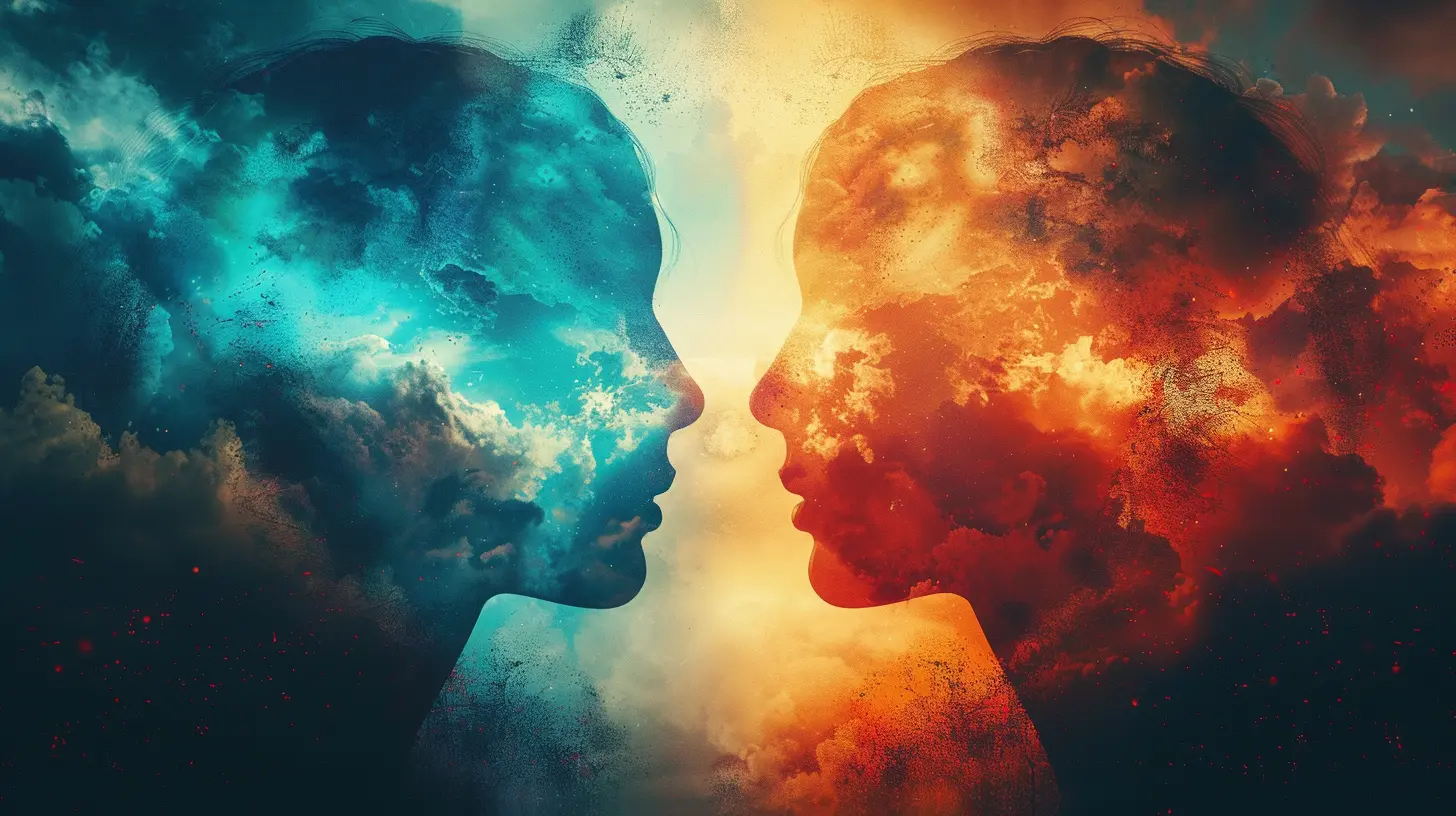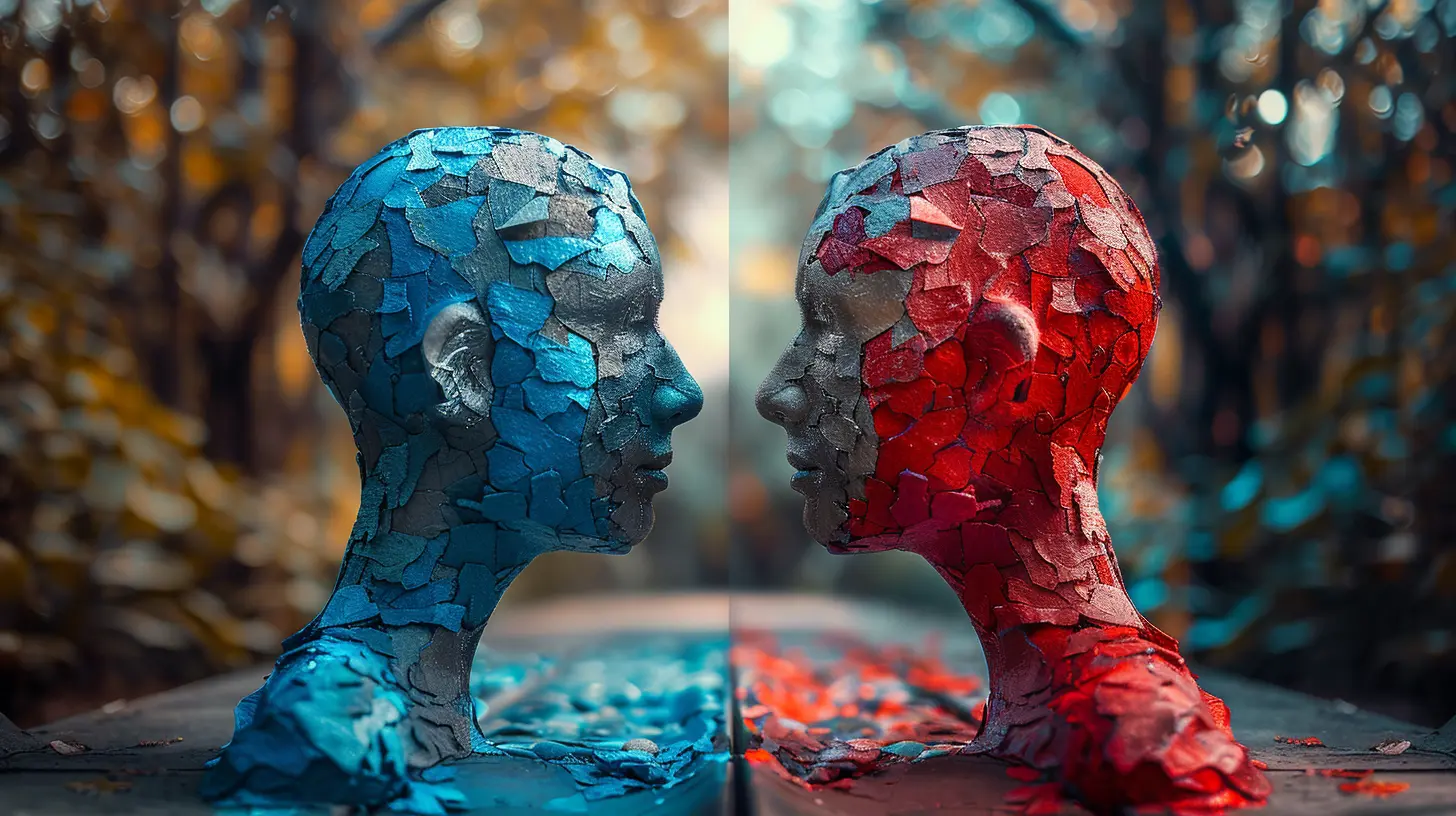The Impact of Positive Relationships on Mental and Emotional Health
21 June 2025
When was the last time you had a heart-to-heart with a friend that left you smiling for hours? Or felt calmer after a hug from someone who truly cares? Relationships aren't just part of life — they're what make life feel alive. And it turns out, they’re not just good for your soul; they’re essential for your mental and emotional health.
Let’s dig into how positive connections with others can literally rewire your brain, keep stress at bay, and boost your overall well-being.

Why Positive Relationships Matter So Much
We’re wired for connection. As humans, we’re social creatures by nature. From the moment we're born, we’re dependent on relationships — and that never really changes.But not just any relationships. Quality over quantity here, folks. It’s the positive, supportive, and meaningful ones that do the heavy lifting when it comes to your mental and emotional well-being. These are the bonds that help us bounce back from setbacks, feel seen and heard, and remind us that we’re not alone.
Let’s Break That Down…
Here’s what strong, positive relationships can do:- Lower stress levels
- Reduce symptoms of anxiety and depression
- Increase self-esteem
- Encourage healthier habits
- Improve longevity and resilience
Ever notice how problems seem smaller after talking to a close friend? That’s not coincidental — it’s science. Our emotional support system acts like a buffer, absorbing some of life’s inevitable hits.

The Mind-Body Connection: How Relationships Affect Your Brain
Okay, let’s get a little nerdy for a second.When you’re surrounded by people who care about you, your brain releases “feel-good” chemicals — oxytocin, serotonin, and dopamine. These neurotransmitters aren’t just mood enhancers. They help regulate emotions, encourage trust, and even reduce physical pain. (Yes, emotional support can literally ease physical discomfort. Wild, right?)
On the flip side, a lack of social connection has been shown to activate the same neurological patterns as physical pain. Basically, loneliness hurts — literally.
Oxytocin: The Bonding Hormone
Oxytocin gets a lot of buzz, and for good reason. It’s released during moments of closeness — think hugs, heartfelt conversations, even making eye contact. This hormone helps reduce cortisol (your body’s stress hormone) and promotes feelings of safety and calm.So, the next time you feel better just from being around someone you trust, thank your oxytocin levels.

Positive Relationships Boost Emotional Intelligence
Have you ever noticed that people in happy relationships tend to be more empathetic and emotionally aware? That’s not by accident.Spending time in healthy relationships helps you better understand not only your own emotions but also those of others. This is emotional intelligence in action: being able to manage your feelings, respond with empathy, and communicate effectively.
And here’s the kicker — emotional intelligence is strongly linked to better mental health. People with higher EQ tend to handle stress more gracefully, avoid unnecessary conflict, and recover from setbacks faster.

The Role of Relationships in Resilience
Life throws curveballs. That’s a given. But how we deal with those challenges often depends on the support around us.Think about the last time you went through a tough patch. Did having someone to talk to make it more manageable? That’s the power of positive relationships: they build your emotional safety net.
Social Support as an Emotional Buffer
When you have people who listen without judgment, encourage without pressuring, and love without conditions — you don’t just survive difficult times. You grow through them. That type of support softens the blow of stress, helps prevent burnout, and can even reduce the risk of developing mood disorders.Relationships and Mental Health Disorders
Let’s touch on something important — mental health conditions like depression, anxiety, and PTSD.While relationships alone can't “cure” these conditions, supportive connections play a crucial role in managing them. Talking with someone who understands, seeks to uplift you, or even just sits in silence with you — that can be incredibly therapeutic.
For many, a strong network of friends and family acts as a lifeline. It provides a sense of belonging and reduces feelings of isolation, which are all too common in mental health struggles.
Therapy and Human Connection
And yes, therapy counts here too. The relationship you build with a therapist is one of the most powerful tools in emotional healing. That connection, built on trust and empathy, is often the first step toward genuine personal growth.
Romantic Relationships: Bliss or Burnout?
Romantic relationships can be a double-edged sword. When they’re healthy, they offer deep emotional intimacy, security, and joy. When they’re toxic — well, they can do more harm than good.Being in a supportive romantic partnership can improve mood, boost self-worth, and even improve physical health. But if you’re constantly stressed, walking on eggshells, or feeling undervalued in a relationship, your mental health could suffer.
Nurture Over Nature
A lasting partnership takes work — and no, it’s not always fireworks and soulmates. It’s about communication, mutual respect, and showing up even when it's uncomfortable. Those small, consistent acts of kindness and understanding? They build an emotional foundation that sustains long-term mental wellness.Friendships: The Unsung Heroes
Friends are like the chosen family we actually enjoy being around (most of the time). They’re there through different chapters of life, offering laughs, advice, and support.Unlike romantic relationships, friendships often come without the same expectations or pressure. That makes them a vital part of your emotional ecosystem.
Different Friends, Different Roles
Don’t underestimate the power of different types of friendships:- The listener who’s always there at 2 a.m.
- The motivator who pushes you to be better
- The joker who reminds you not to take life too seriously
Each type of friend fills a unique emotional need — and maintaining those connections is key to feeling emotionally balanced.
Family Ties: Complicated but Crucial
Family relationships usually bring a mixed bag — love, conflict, loyalty, and maybe a little drama. Yet, when family bonds are strong and nurturing, they provide a solid emotional foundation.Close family ties can:
- Boost confidence and security
- Provide unconditional support
- Help you feel rooted and connected to your identity
That said, not everyone comes from a supportive family. And that’s okay. The beautiful thing is, we can create our own support systems through friendships, partnerships, or chosen families.
How to Build and Maintain Healthy Relationships
So, we’ve talked a lot about why relationships matter. But what makes a relationship “good” for your mental and emotional health?Here are a few cornerstones:
1. Communication is King
You can’t build a strong relationship without open, honest communication. Speak your mind, but also listen — really listen. Don’t just wait for your turn to talk.2. Boundaries Aren’t Optional
Healthy relationships require boundaries. That means knowing when to say no, respecting each other’s space, and recognizing that it’s okay to have limits.3. Show Up
Emotionally present people make all the difference. Whether it’s a phone call, a coffee date, or just checking in with a quick text — make the effort to stay connected.4. Practice Forgiveness
Nobody’s perfect. There’ll be misunderstandings. What matters is how you handle them. Forgiveness doesn’t mean forgetting; it means letting go of resentment.5. Quality Over Quantity
It’s better to have a few deep, meaningful connections than dozens of surface-level ones. Invest your energy where it counts.
The Dark Side: When Relationships Harm Mental Health
Unfortunately, not all relationships are uplifting. Some tear us down, drain our energy, and leave emotional scars. Toxic relationships can lead to:- Increased anxiety or depression
- Low self-esteem
- Emotional exhaustion
- Codependency
If a relationship consistently makes you feel bad about yourself, it’s time to reevaluate. Prioritizing your mental health sometimes means walking away — and that takes courage.
Final Thoughts: Relationships Are Our Emotional Anchors
At the end of the day, none of us is meant to go through life alone. Positive relationships give our lives color, meaning, and depth. They don’t just make the good times better — they make the hard times bearable.So, take a moment today to call a friend. Hug your partner a little tighter. Send a random “thinking of you” message. These little moments add up to a big impact — on your heart, your mind, and your mental well-being.
Because at the core of emotional wellness, it’s not just about “feeling good.” It’s about feeling connected.
all images in this post were generated using AI tools
Category:
Positive PsychologyAuthor:

Ember Forbes
Discussion
rate this article
2 comments
Ace Abbott
Positive relationships aren't just a luxury; they're a necessity for mental and emotional well-being. They fuel resilience, enhance happiness, and act as a buffer against stress. Investing in meaningful connections isn't optional—it's essential. If you're not prioritizing these relationships, you're undermining your own mental health. Get out there and nurture them!
November 19, 2025 at 4:26 AM

Ember Forbes
Absolutely! Prioritizing positive relationships is crucial for our mental and emotional health. They truly are the foundation for resilience and happiness. Thank you for highlighting this important aspect!
Spike Pace
Positive relationships are vital for mental health, fostering resilience, reducing stress, and enhancing overall emotional well-being.
June 30, 2025 at 3:19 AM

Ember Forbes
Absolutely! Positive relationships play a crucial role in supporting mental health and enhancing emotional well-being by providing connection, support, and resilience. Thank you for your insight!


